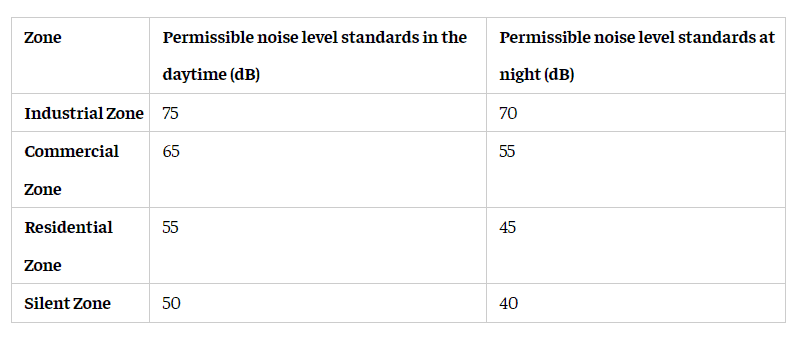





Diesel generators are now common in nearly every commercial building across India, serving as a crucial backup power source amid frequent electricity supply fluctuations. However, they are often criticized for their loud noise and significant pollution. Although enclosures have helped mitigate noise levels, the Central Pollution Control Board (CPCB) aims to further reduce them with new guidelines.
Noise level refers to unwanted sound in an environment, measured in decibels (dB). The human hearing threshold is at 0 dB, with sounds above 85 dB considered harmful. For instance, a quiet library measures around 30 dB, while a busy street can reach up to 85 dB. In contrast, a rock concert may exceed 120 dB, posing risks of permanent hearing damage. It’s essential to monitor our noise exposure and take protective measures, like using earplugs in loud settings.
The CPCB has set noise limits for various areas in India. In industrial zones, the daytime limit is 75 dB and 70 dB at night. For commercial areas, the permissible levels are 65 dB during the day and 55 dB at night. Residential zones allow for 55 dB in the daytime and 45 dB at night. Additionally, ‘silent zones’—areas near schools, hospitals, and courts—permit only 50 dB during the day and 40 dB at night.
The noise produced by diesel generators can lead to health issues and environmental harm. Commonly used in areas without reliable electricity, these generators can be particularly noisy when operating at full capacity. The consequences of this noise pollution include hearing loss, sleep disturbances, and decreased productivity, as well as negative effects on local wildlife.
According to CPCB guidelines, new diesel generators with a 1000 kVA capacity should not exceed 75 dBA. Acoustic enclosures are recommended to minimize noise, using soundproof materials that help limit disturbances to neighbors. For residential use, generators with noise levels of 85-90 dB (A) are typically employed.
Choosing the right generator is crucial for noise management, and opting for silent diesel engines can be an effective solution.
Silent gensets, or soundproof generators, are designed to operate quietly, incorporating sound-absorbing materials like foam and insulation to minimize noise. Their enclosures are built from high-quality materials that block sound, and the design minimizes vibrations. These generators are ideal for residential areas, hospitals, schools, and other noise-sensitive locations, providing reliable power without disturbing the environment.
To effectively reduce noise pollution, investing in high-quality diesel engines is essential. Generators equipped with acoustic enclosures and superior engines can help you comply with regulations while significantly lowering noise levels.




